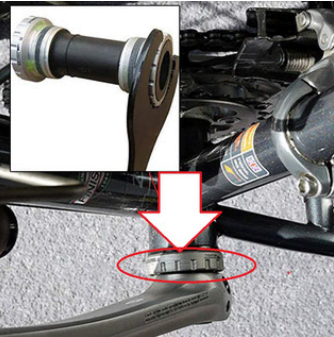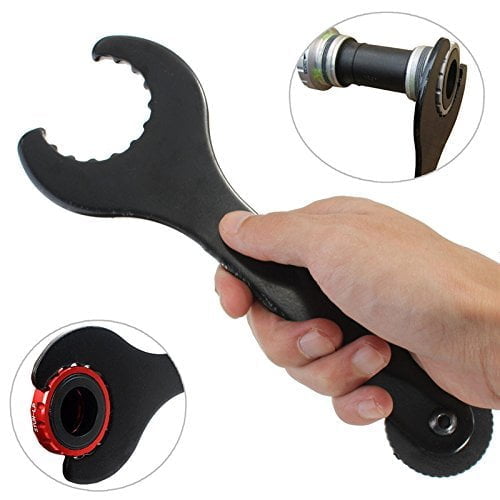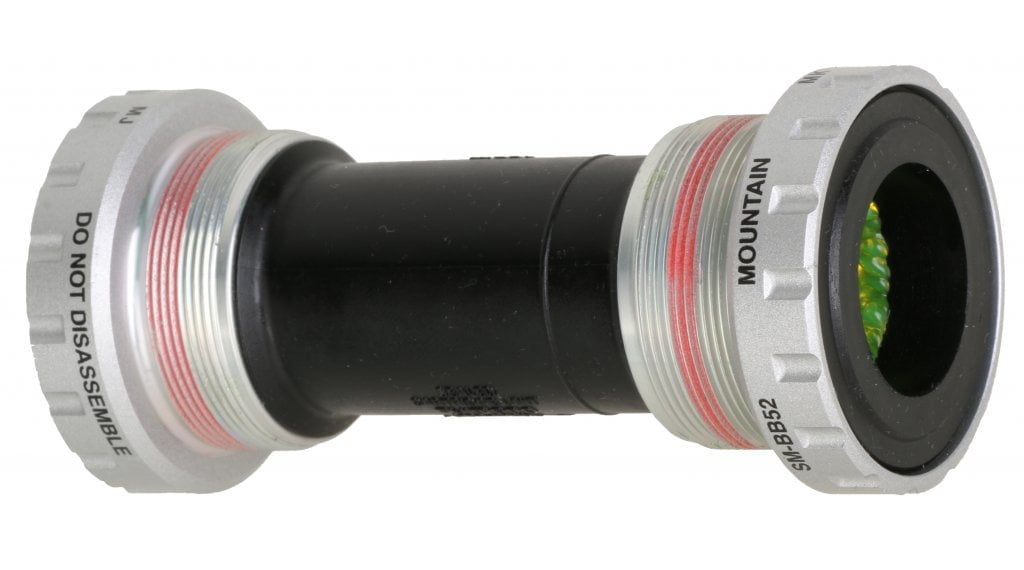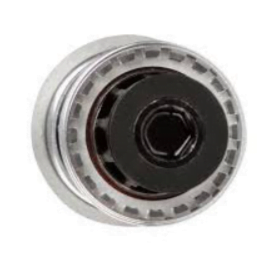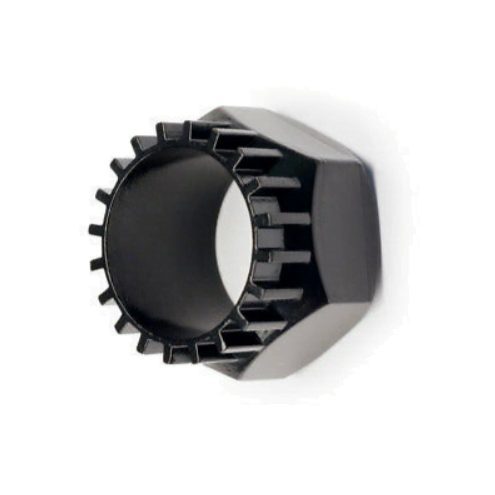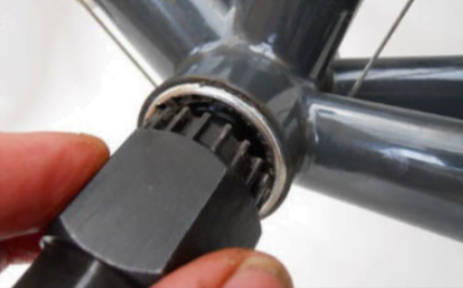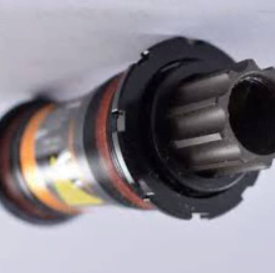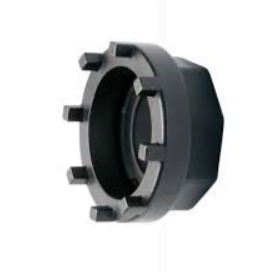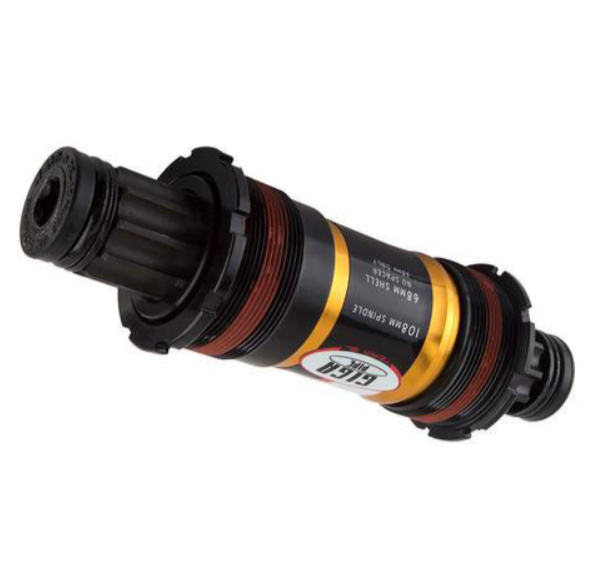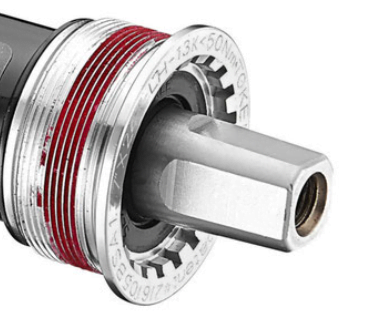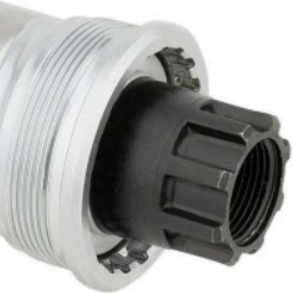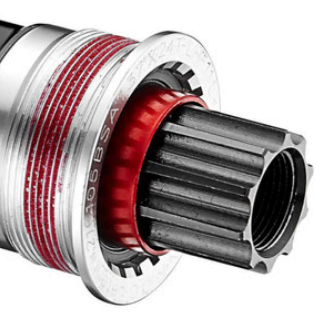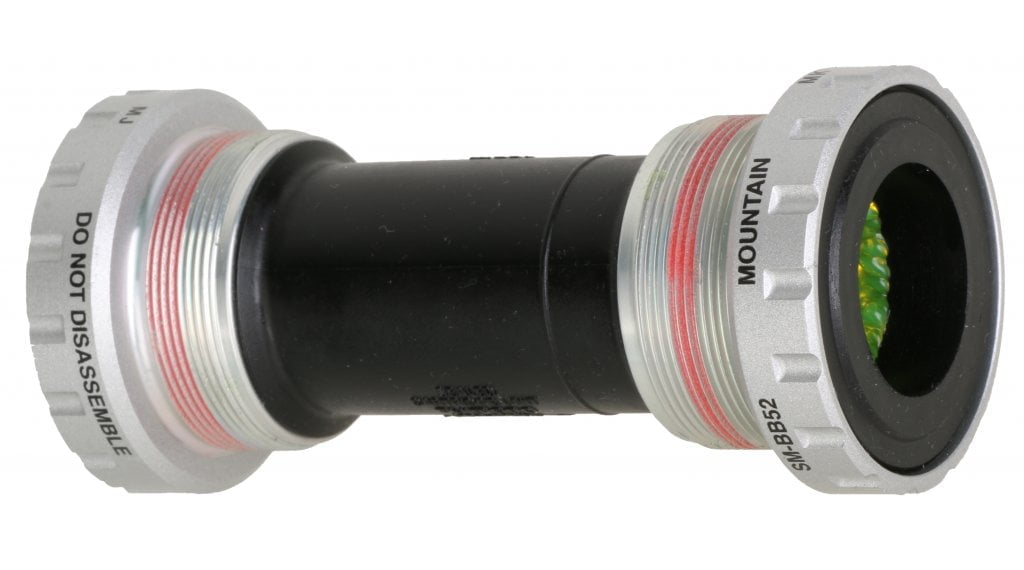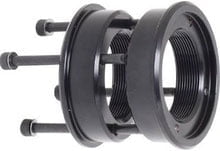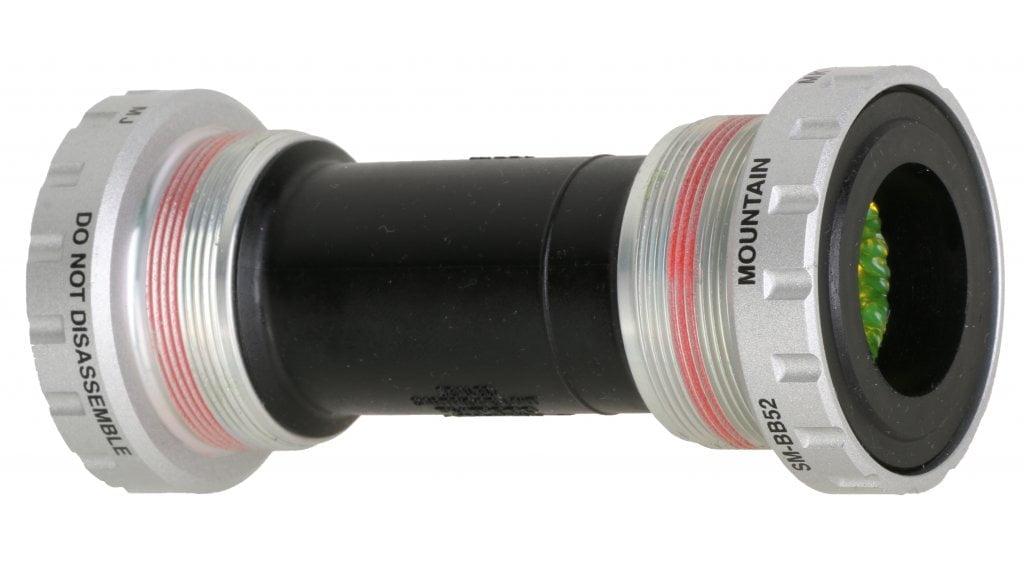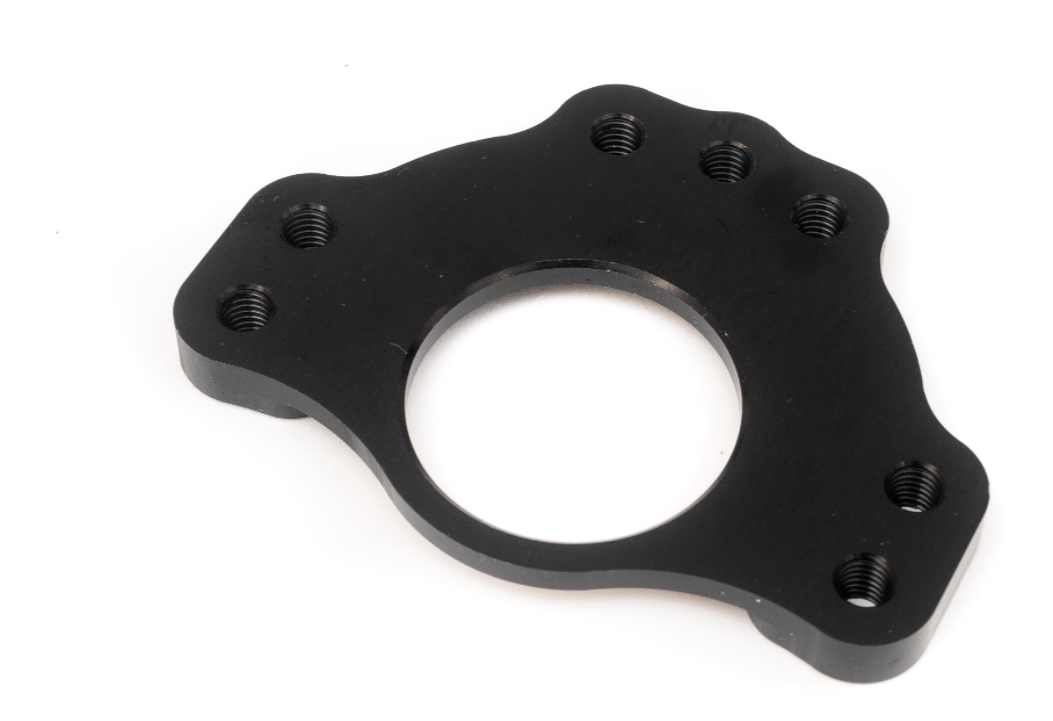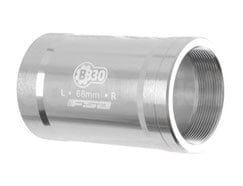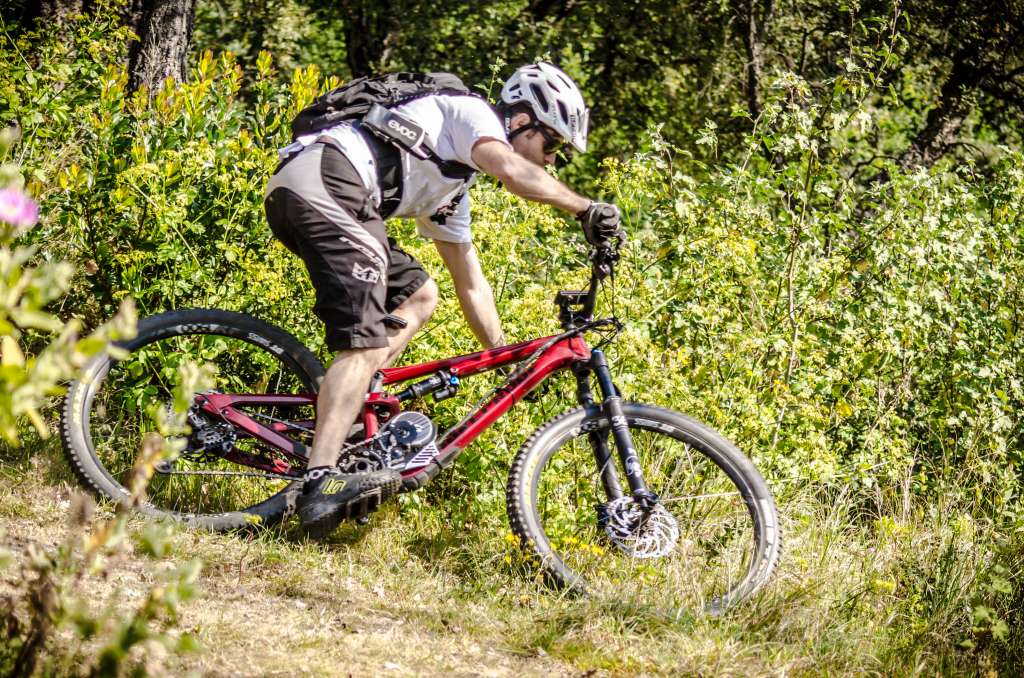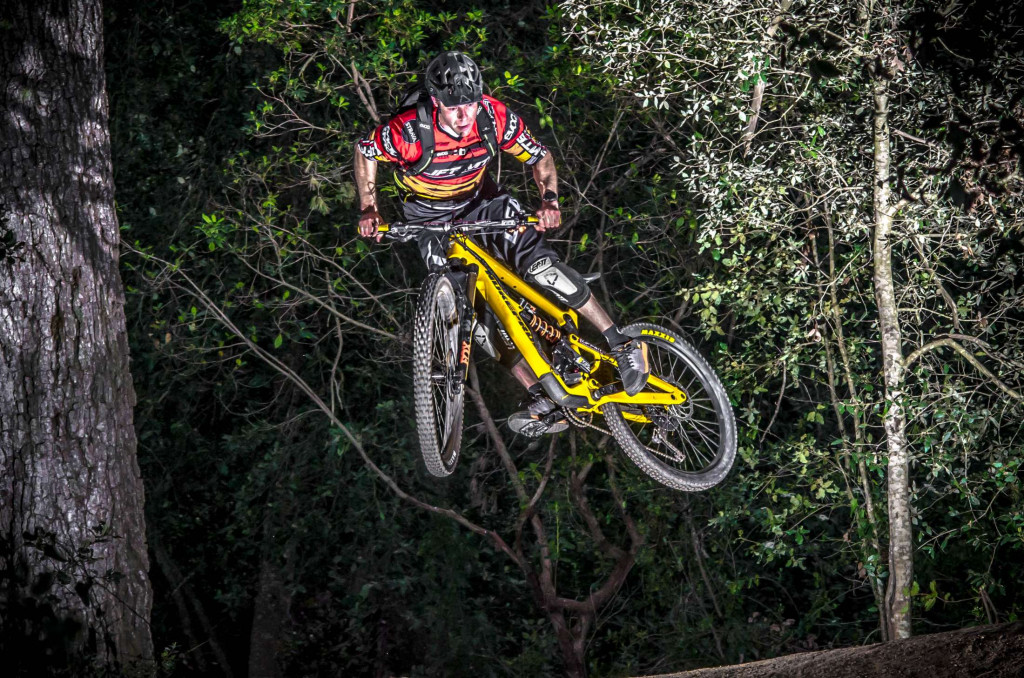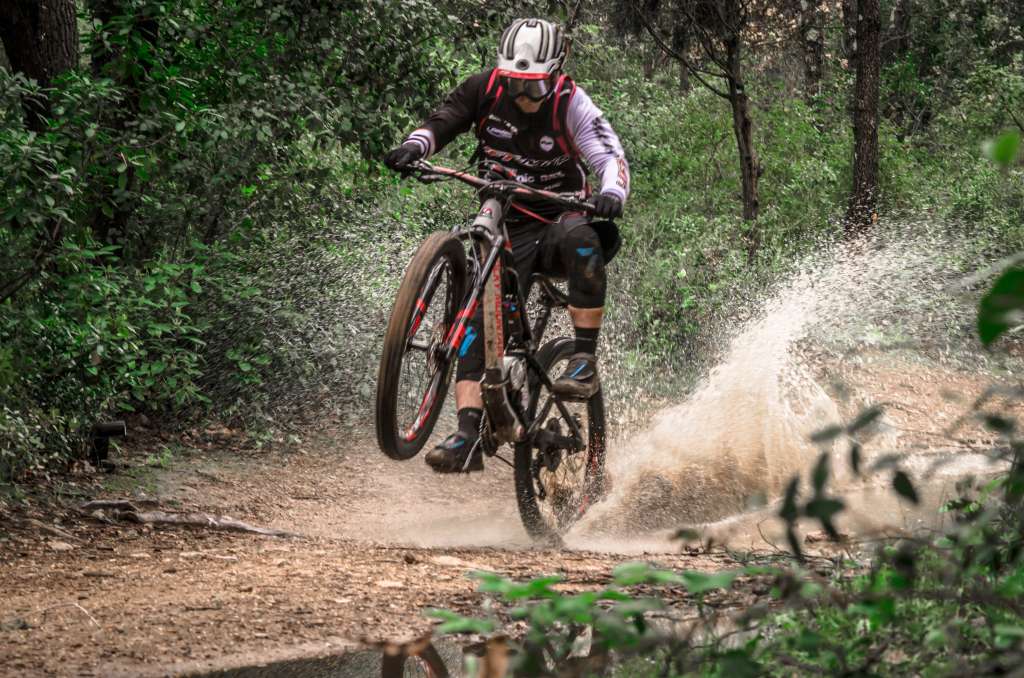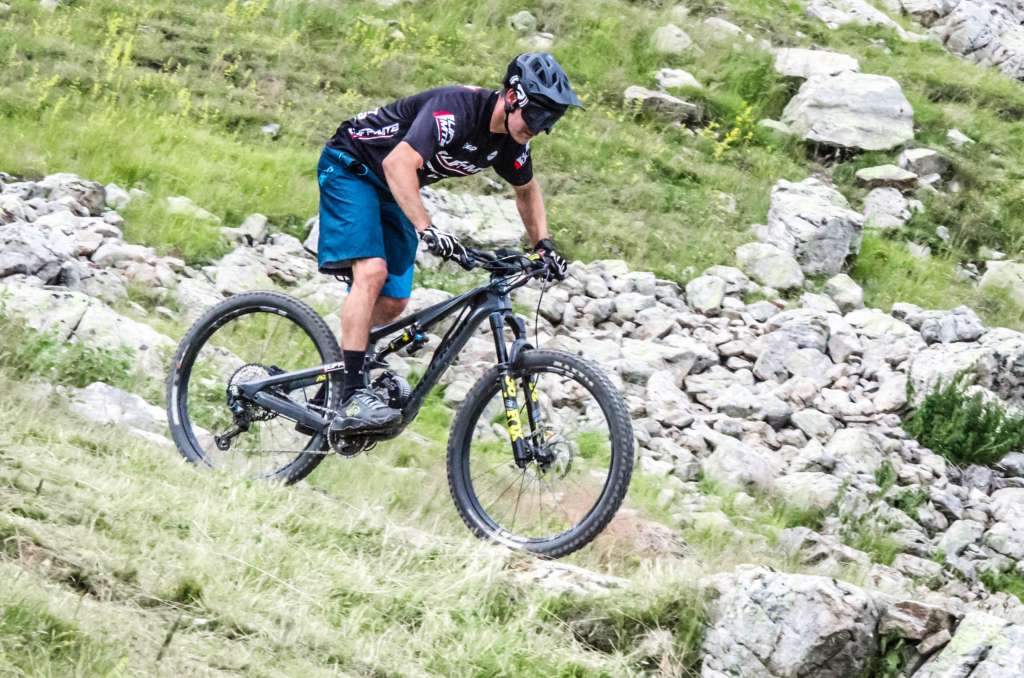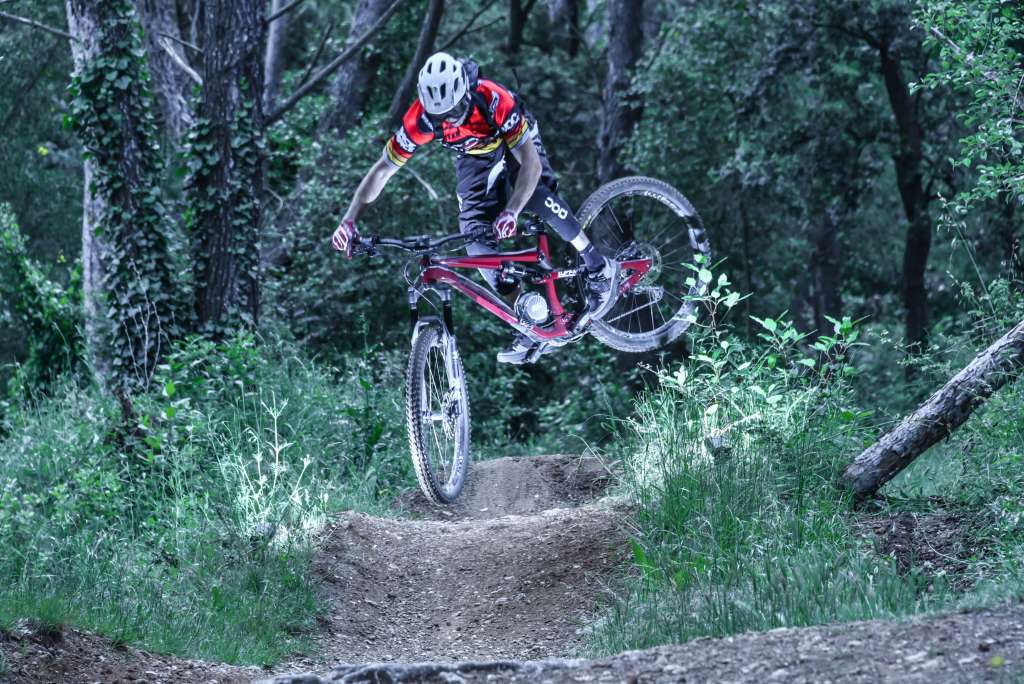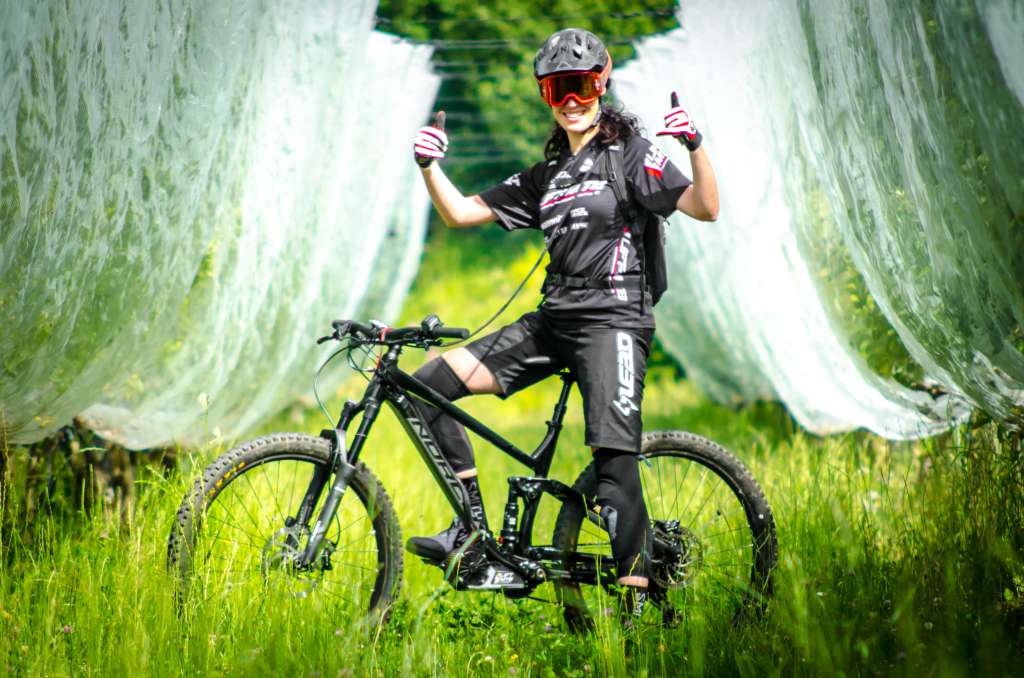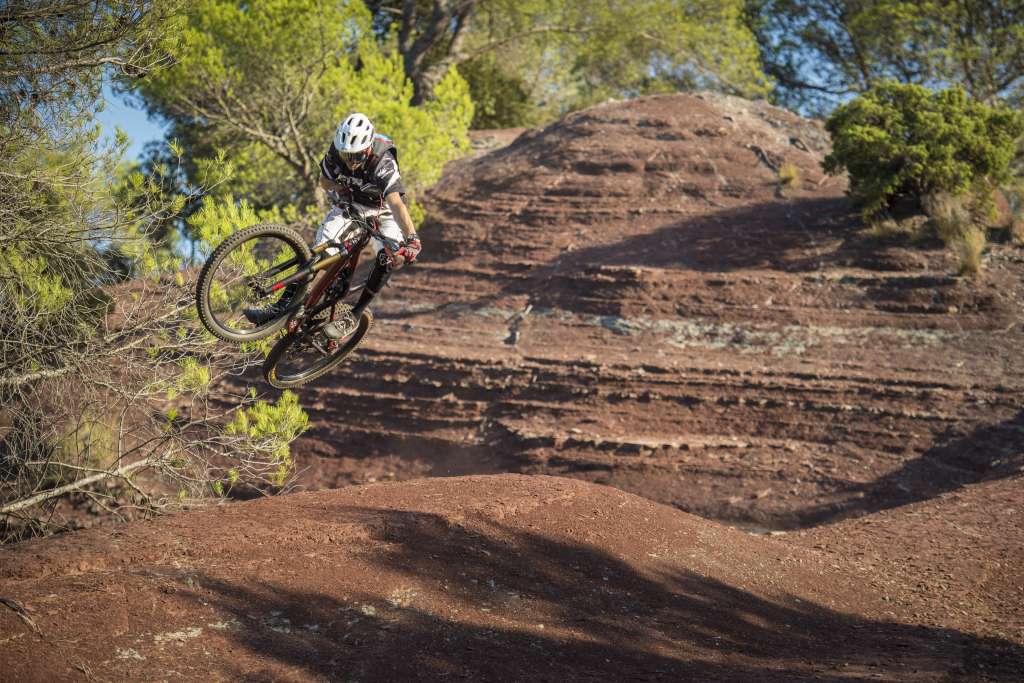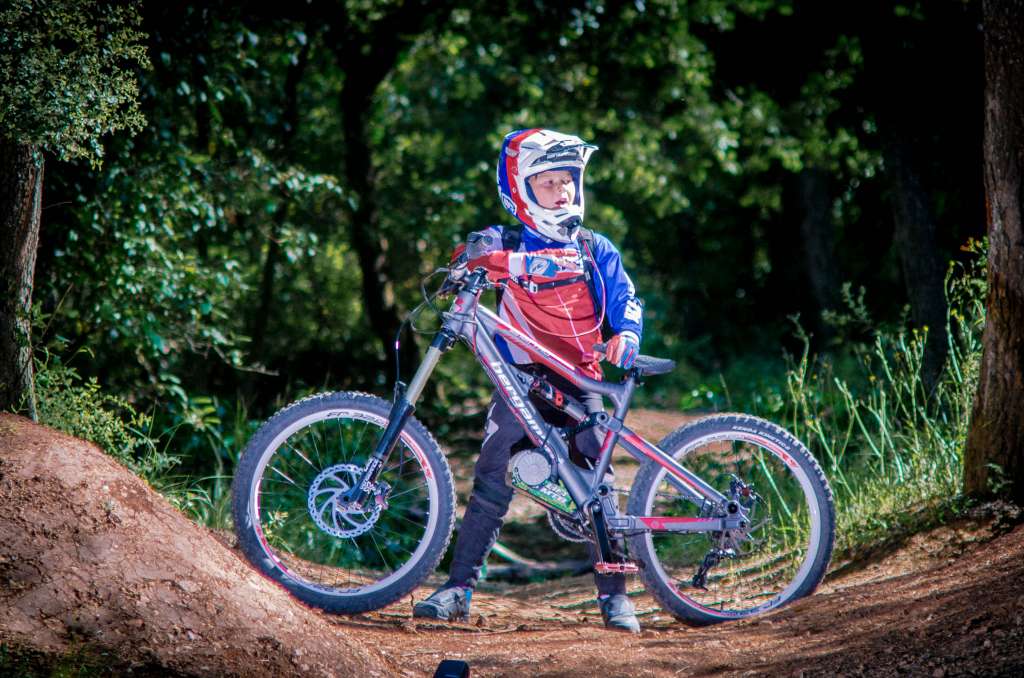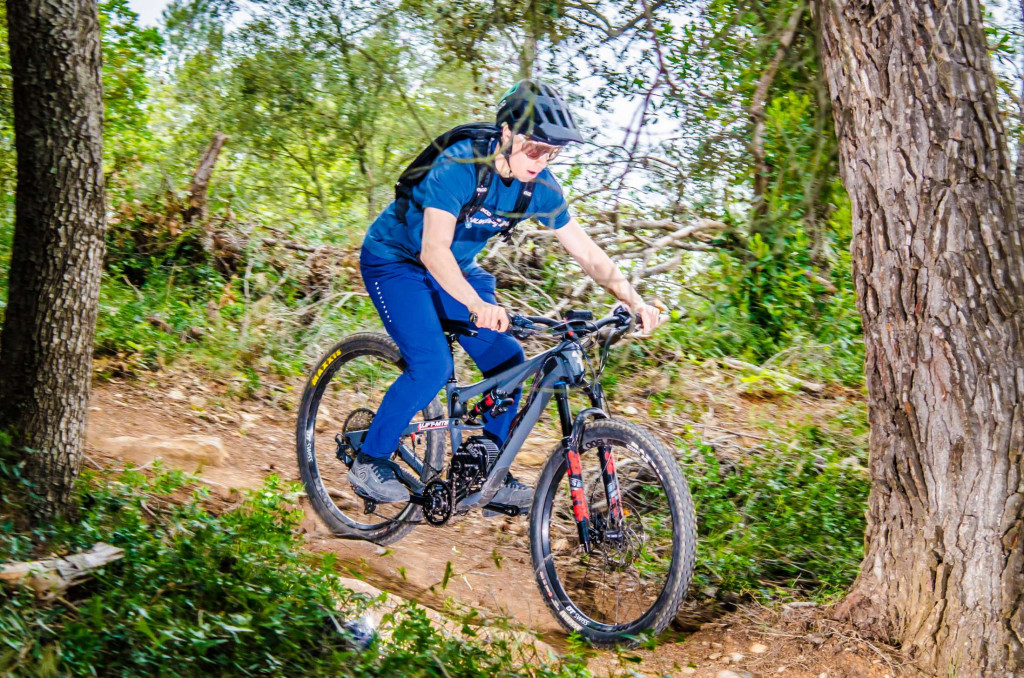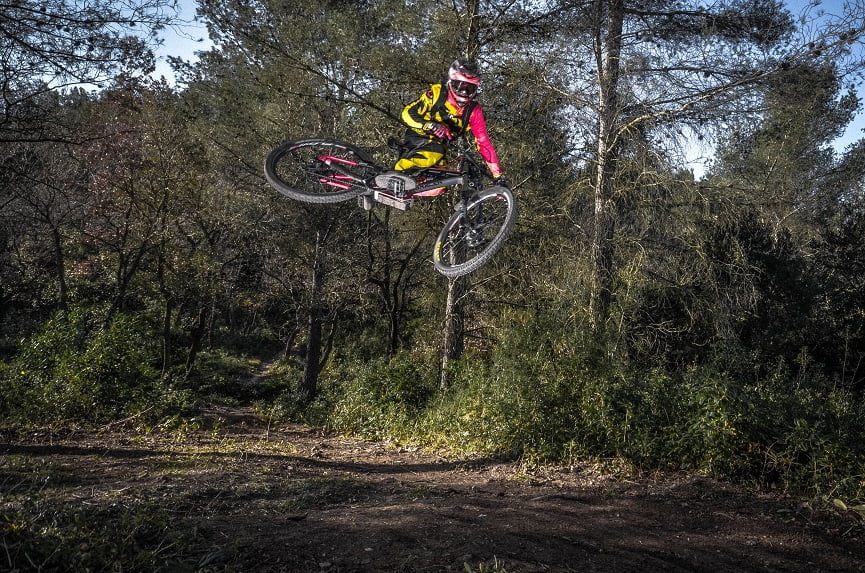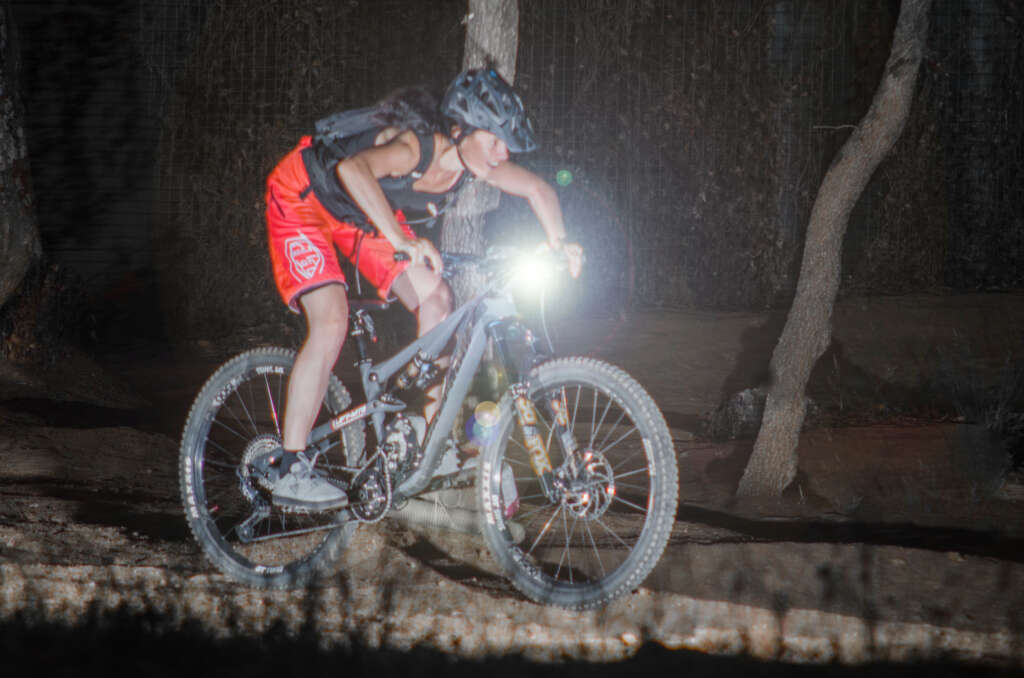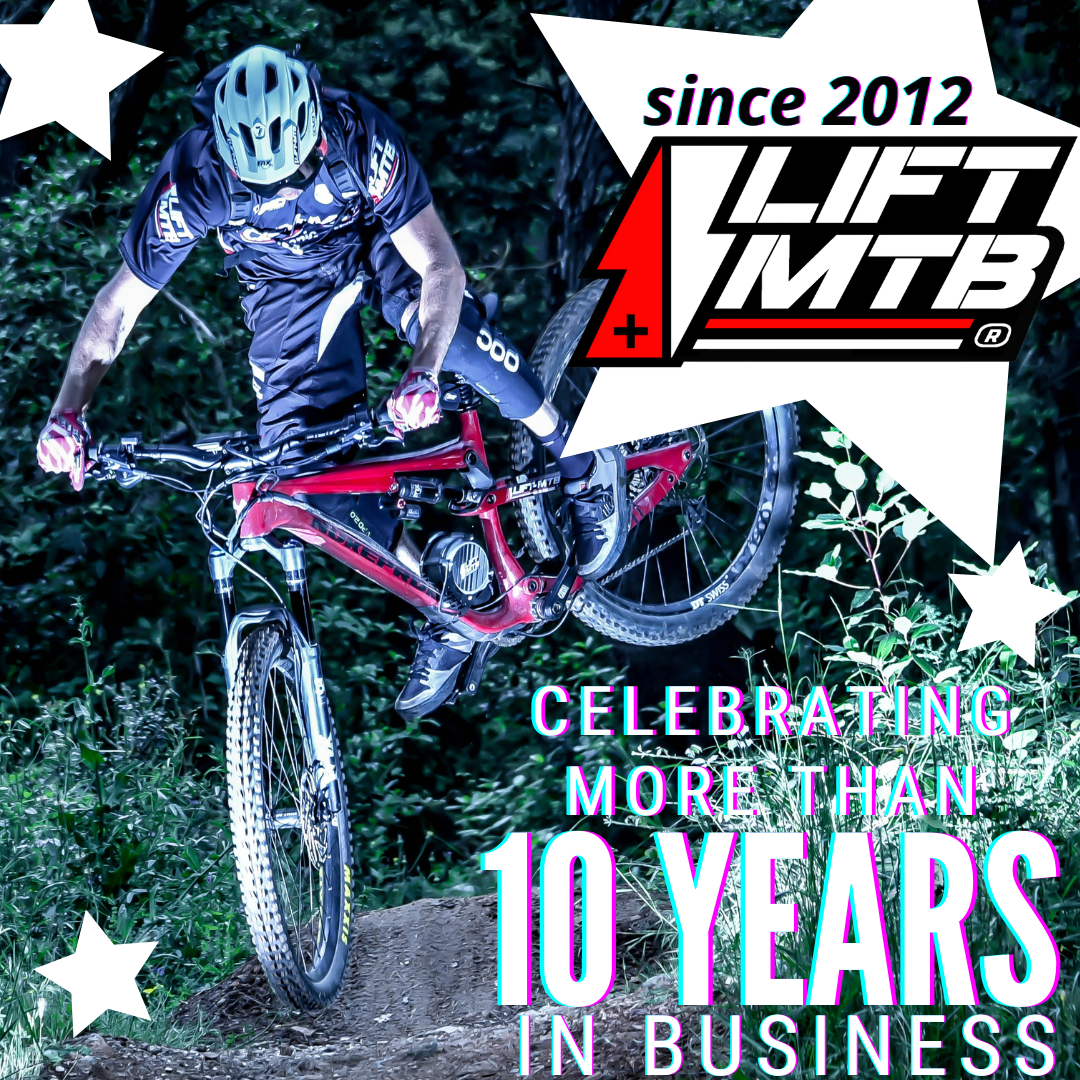How to recognize your bottom bracket?
As described in the “compatible” tab, if your frame does not have ISCG mounting studs directly on the frame, you will need to install an adapter to attach the LIFT-MTB mid drive motor to your frame.
To do so, you just need to identify the bottom bracket model equipped on your bike.
Below you will find a simple guide to help youidentify the standard bottom bracket you have.
NOTE: We also recommend that you read the “COMPATIBLE?” page for more information by clicking on the button below.
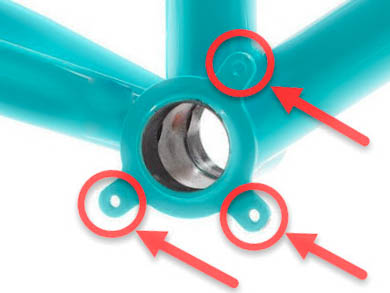
There are two main families of bottom bracket:
Steps to differentiate bottom brackets.
1) FRAME WITH EXTERNAL BOTTOM BRACKET, SCREWED TYPE BSA
Specificities:
In this case, there is a thread of 34.5mm inside the frame which allows to screw aluminum cups (in red on the picture) in which are placed bearings.
The bottom bracket axle will then slide into these bearings.
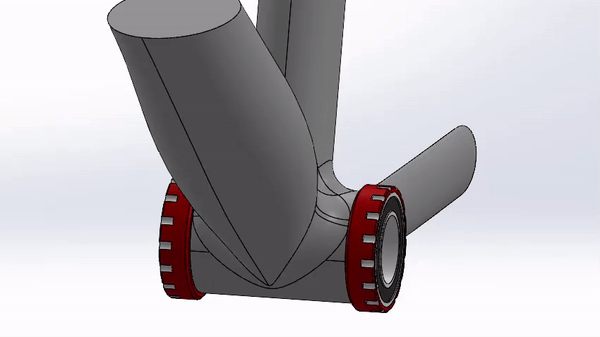
To recognize this standard:
We can see, exceed from each side the cups with the typical imprint of the lugs to put the loosening tool.
Opposite is a top view which allows to distinguish the cup with the lugs, and the key which allows to dismantle the cups with the bearings.
Typical measurements of a BSA bottom bracket.
- Classic frames type BSA it is generally 68 mm wide (road) and 73 mm (MTB), for a total width with cup and bearing of about 96.5mm, the diameter of the thread is 34.5mm.
- Some DH bikes have a frame width of 83mm, for a total width with cup and bearing of about 111.5mm.
- Finally in some rare cases like fat bikes this width will be 100mm, for a total width with bowl and bearing of about 128.5mm (measurement not present on the illustration).
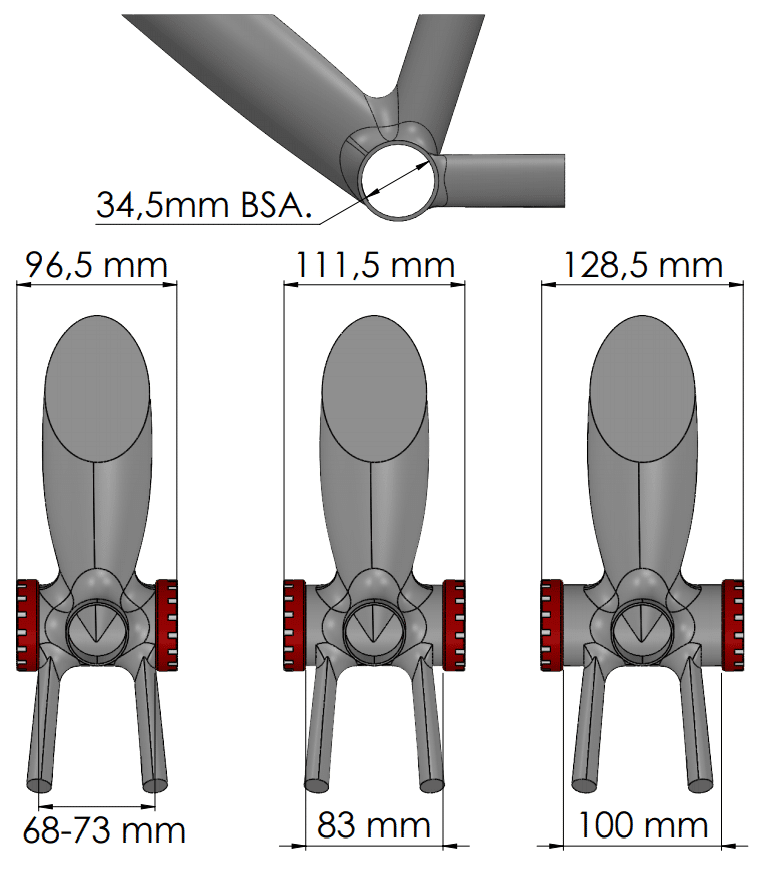
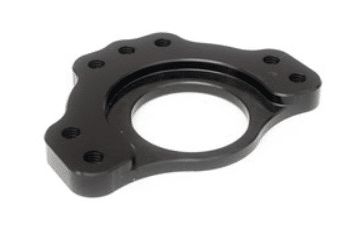

Video of the dismantling of an external BSA BB with a wrench (available on our store), to put the type A adapter which will allow to fix the LIFT MTB mid drive motor to your frame.
2) FRAME WITH BOTTOM BRACKET WITH SEALED CARTRIDGE, SCREWED TYPE BSA
Specificities:
Although less common, some bottom brackets of all brands use crimped bottom brackets, meaning that the bottom bracket bearings and the bottom bracket axle are one and the same part.
These are cranksets that generally date back to 2005 or earlier for high-end bikes, most brands have replaced this type of sealed BB with the standard thru axle mentioned above (case 1/2/3) on their mid/high-end version.
Some mounts can also be mounted like this on very recent bikes even if it is more rare.
Here are the main brands and models of cranksets that have used this standard sealed bb, and that can be found on bicycles:
- crankset with SQUARE axle version whether it is SHIMANO / SRAM / RACE FACE …
- shimano crankset version OCTALINK.
- crankset version ISIS (race face, fsa…) TRUVATIVE HUSSEFELT and TRUVATIV HOLZFELLER.
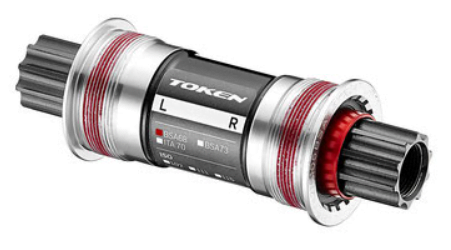
To recognize this standard:
There are two particularities to recognize this type of bottom bracket:
Number of screws:
They are 3 pieces cranksets, so we have two cranks, left and right, and the axle / bearings set in the frame.
There is therefore a clamping screw on each side of the cranks on this type of sealed axle.
The clamping impression of the case:
We can see the typical imprint of the internal lugs to put the loosening tool inside the frame.
(below is a view of the 2 types of tools with lugs that allow the dismantling of scealed cartridges).
Typical measurements of a sealed BSA bb.
- Classic frames type BSA it is generally 68mm wide (road) and 73mm (MTB), the diameter of the thread is 34.5mm.
- Some downhill bike models (DH) have a frame width of 83mm.
- Finally in some rare cases like fat bikes this width will be 100mm.
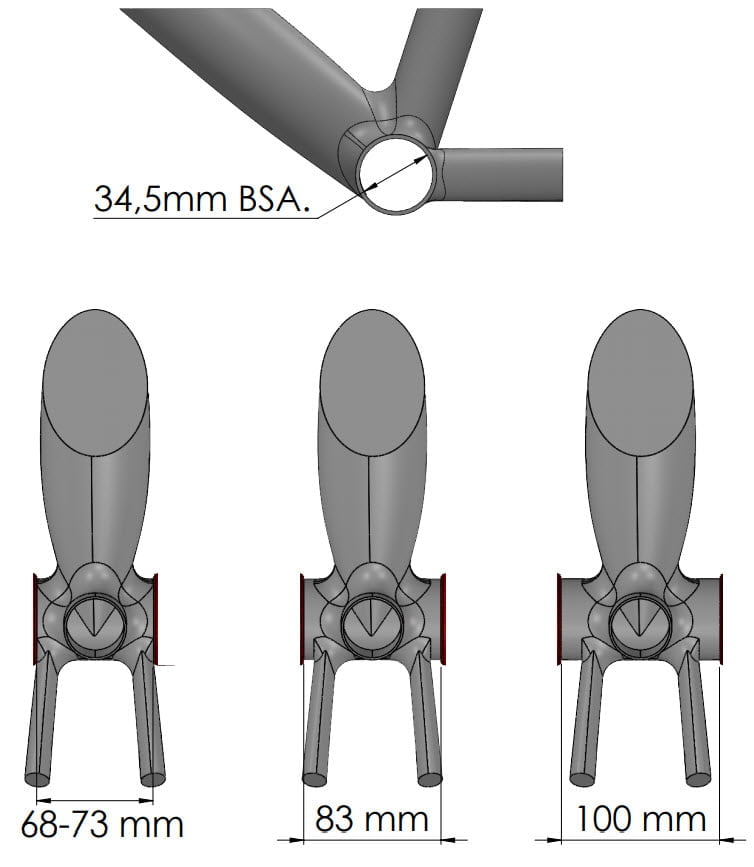
To disassemble the cranks with a sealed case type ISIS, Square, or OCTALINK.
You will first have to extract the crank with a crank extractor as shown on the picture on the right and on the video below.

If you have a crimped BSA bottom bracket, you will have to add two pieces:

The video on the right shows you how to mount an external BSA box to put the type A adapter that will allow you to fix the LIFT MTB crankset motor to your frame.

Here is how to disassemble the cranks of a crankset with a bearing / axle set crimped in video and add the type A adapter for fixing the motor for bike.
3) FRAME WITH PRESSED BOX BB92
Specificities:
In this case, the frame is smooth on the inside and the cup with the bearing is simply pressed into the frame in diameter 41 mm.
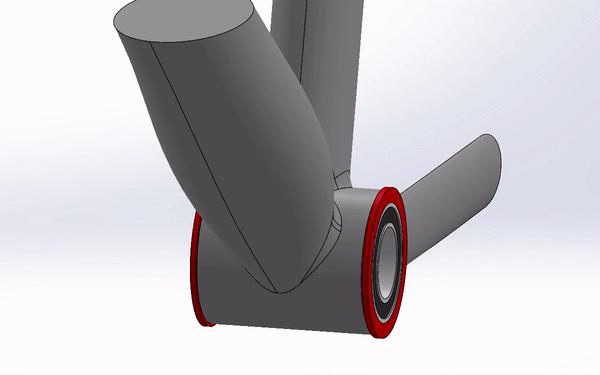
Typical measurements of a BB92 type box.
- Classic frames type BB92 have generally a width of 89.5mm (road) and 92 mm (MTB), if we add the thickness of the bearings we get 96.5mm
- Some downhill bikes (DH) have a frame width of 107mm, if you add the thickness of the bearings you get 111.5mm
- Finally in some rare cases like fat bikes this width will be 120mm.
The inner diameter of the frame (or outer diameter of the bowls will be 41mm).
Although it can change depending on the MTB frame, generally the outside diameter of the frame where the bearings are inserted is about 47 mm.
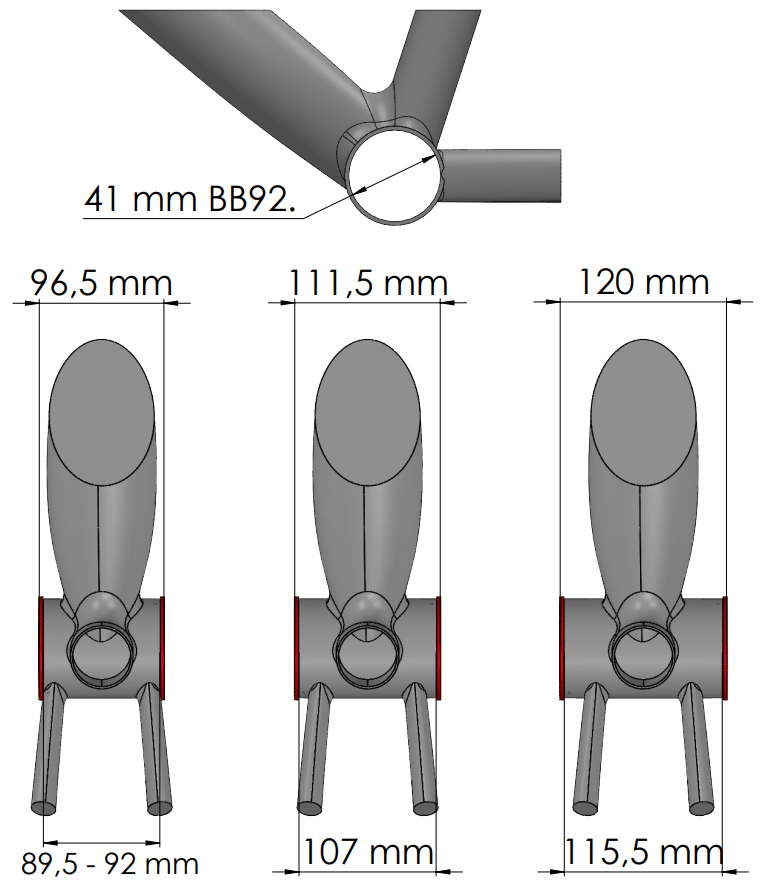
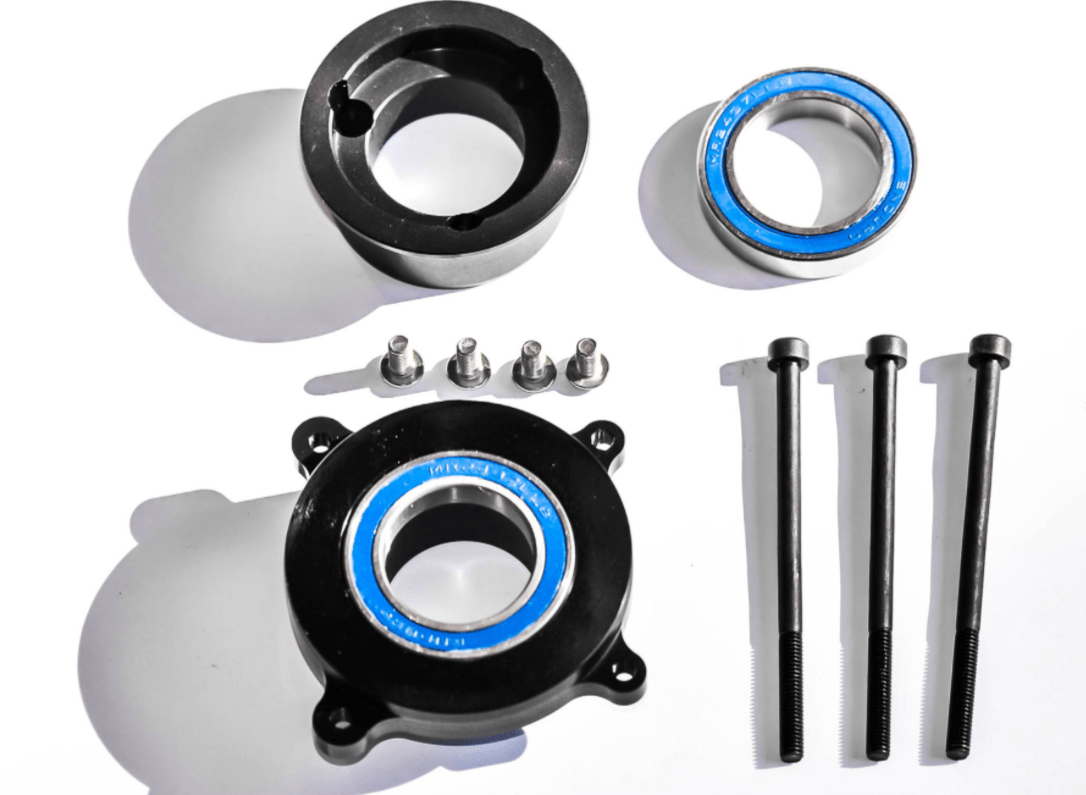

The video on the right shows you how to replace a BB92 pressed box to put the D type adapter that will allow you to fix the LIFT MTB mid drive motor to your frame.
4) FRAME WITH PRESSED BB PF30
Specificities:
In this case, the frame is smooth on the inside and the cup with the bearing is simply pressed into the 46mm diameter frame.

Typical measurements of a PF 30 BB.
- Classic frames type PF 30 have a width of 68 mm (road) and 73 mm (MTB).
- The inner diameter of the frame (or outer diameter of the bowls will be 46 mm).
- Although it can vary depending on the frame, generally the outside diameter of the frame where the bearings are inserted is about 52 mm.
- The inside of the frame is smooth without threads.
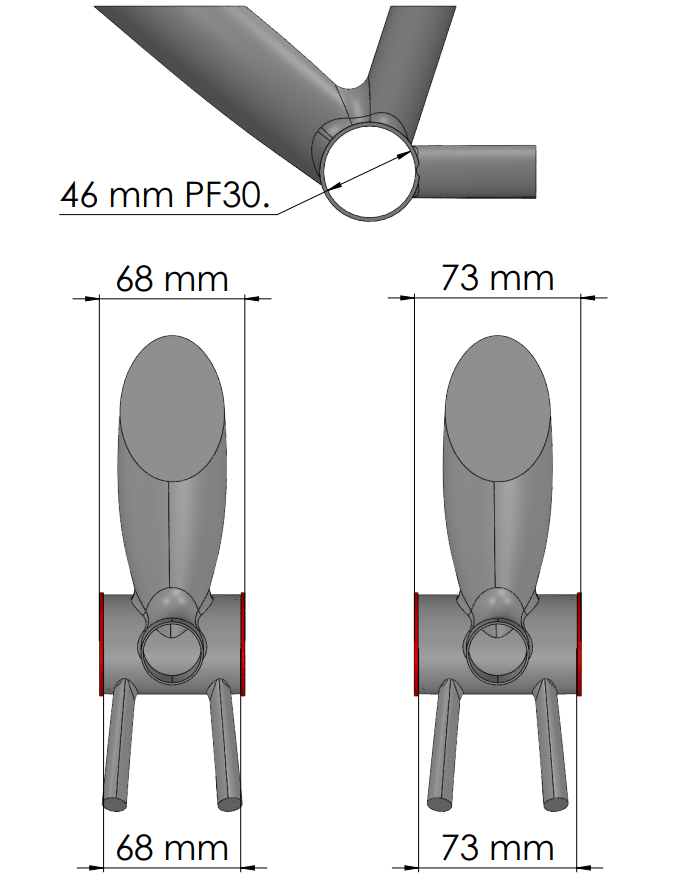
If your frame is PF 30 standard you will need the type B adapter consisting of the three parts below:

The video opposite shows how to replace a BB30 and PF30 pressed box to fit the type D adapter that will allow you to attach the LIFT MTB mid drive motor to your frame.
5) FRAME WITH BB30 PRESSED BOX
In this case, the frame is smooth on the inside and the cup with the bearing is simply pressed into the 42mm diameter frame.

Typical measurements of a BB30 type box.
- Classic BB30 frames have a width of 68 mm (road) and 73 mm (MTB).
- The inside diameter of the frame or outside diameter of the bowls will be 42 mm and the inside of the frame is smooth without threads (unlike the BSA).
- Although it can vary depending on the frame, generally the outside diameter of the frame where the bearings are inserted is about 48 mm.
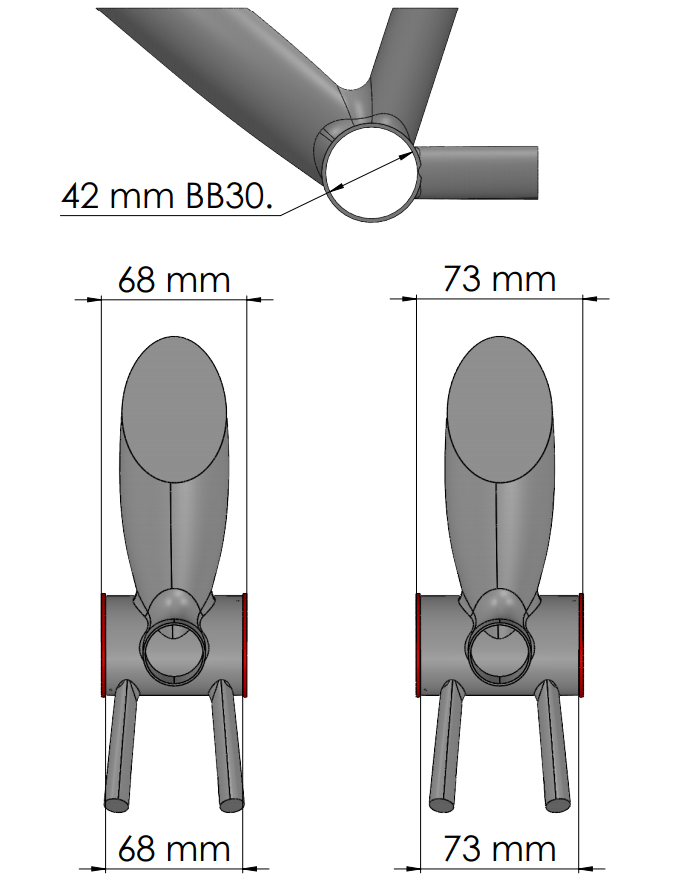
If your frame is standard BB30 you will need the type C adapter consisting of the three parts below:

The video on the right shows you how to replace a BB30 and PF30 pressed box to put the D-type adapter that will allow you to fix the Mountain Bikes LIFT MTBmid drive motor to your frame.

